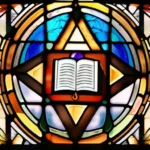Exploring the historical, religious, and cultural reasons behind the Jewish rejection of Jesus as the Messiah
Jewish people do not believe in Jesus as the Messiah. This belief stems from a complex interplay of historical, religious, and cultural factors. In this article, we will delve into the reasons behind this belief, providing a comprehensive understanding of this important topic.
The Historical Context
Imagine walking through the bustling markets of ancient Jerusalem, where the sounds of commerce and conversation blend with the whispers of prophecy and history. The year is 1st century, and tensions are high among the Jewish people. As you wander, a question gnaws at your mind: why do so many Jews reject Jesus as their Messiah? What were the historical events that shaped this perspective?
It all begins with the Babylonian exile. For centuries, the Hebrew people faced oppression and despair under foreign rulers. The promise of a deliverer had been a beacon of hope, a reminder of God’s sovereignty over their fate. But what exactly did they expect from this Messiah? Many envisioned him as a political leader who would free them from Roman domination, restore the glory of David’s kingdom, and establish peace and prosperity on earth.
The historical context is crucial here. The Jews were weary of foreign rule, yearning for their ancestral homeland to be once again under Jewish control. This desire for national liberation and political freedom was deeply ingrained in their identity, a legacy of the Exodus narrative that had been passed down through generations.
As we delve deeper into this history, one cannot help but wonder: how did Jesus’ message of spiritual salvation fail to resonate with the prevailing expectations? Was it simply because he did not fulfill their political aspirations, or was there more to it?
Jewish Understanding of the Messiah
Understanding the Jewish perspective on Jesus as the Messiah involves delving into the rich tapestry of Jewish tradition and religious history. The concept of a Messiah in Judaism is deeply rooted in the Hebrew Bible, where Hezekiah, David, and other leaders are described as figures who will bring about salvation and restore Israel’s glory.
Imagine the longing for deliverance that echoes through Jewish texts like Isaiah’s prophecy: ‘How beautiful on the mountains / Are the feet of him who brings good news’ (Isaiah 52:7). These messianic expectations are not just about a distant future; they represent a tangible hope for redemption and restoration.
The idea that Jesus could be seen as the Messiah is fraught with challenges. One central question arises: Could someone from outside the traditional lineage of King David, the supposed line of Messianic kings, fulfill these ancient prophecies? The Jewish people have always placed great importance on genealogical purity, and this is a significant hurdle in accepting Jesus as the Messiah.
The messiah, according to Jewish tradition, would be a figure who would unite the divided Israelites, restore the temple in Jerusalem, and bring about a time of unparalleled peace. Could these grand expectations be met by someone whose teachings emphasized compassion over ritualistic observance? This was a complex question that many Jews grappled with.
In exploring this topic, it’s important to consider how deeply ingrained the concept of the Messiah is in Jewish culture. The messianic age is seen as an era where justice and peace will prevail; imagine if someone proposed a different kind of messiah—one who brought about spiritual rather than temporal salvation. This was a paradigm shift that many traditional Jews found hard to accept.
Theological differences aside, the rejection of Jesus by the Jewish community highlights the profound impact of historical events on religious beliefs. The divide between Christianity and Judaism is not just a matter of personal faith but also a reflection of deep-seated cultural and societal values that have evolved over centuries.
The Life and Teachings of Jesus
The life and teachings of Jesus have been at the heart of much debate, especially among those who identify as Jewish. One cannot discuss the messianic expectations within Judaism without delving into the historical and theological nuances surrounding Jesus’ claims. How did his life and teachings resonate—or fail to do so—with the traditional Jewish understanding of what a Messiah should be?
Imagine, if you will, the hopes and dreams of an ancient people, burdened by the weight of centuries under foreign rule. The Messiah, in their tradition, was more than just a figurehead; he was to be a savior who would bring about spiritual and political redemption. His role was not merely one of divine messianic work but also of human leadership that could restore the glory of Israel.
Now, let us explore how Jesus’ life and teachings compared with these expectations. On one hand, his parables offered profound insights into ethical living and the nature of God, resonating deeply with Jewish values. His Golden Rule, for instance—‘Do to others as you would have them do to you’—seemed a call to justice that many could embrace.
However, his claim to be the long-awaited Messiah posed significant challenges. Many Jews were expecting someone who would lead political resistance against Roman rule and reclaim Jerusalem’s sovereignty. Jesus, on the other hand, did not engage in armed conflict or direct confrontation with authority figures. His approach was spiritual, often metaphorical, focusing more on internal transformation than external rebellion.
Consider this: If the Messiah were to be a deliverer from oppression, why didn’t Jesus use his power to overthrow the Roman Empire? Instead, he seemed content with healing and teaching in private settings. This contrast is stark when compared to the public and grandiose expectations many Jews had for their messiah.
Moreover, the concept of a suffering Messiah did not align well with traditional Jewish beliefs about deliverance. The idea that the Messiah might face suffering or death seemed to contradict the notion of divine protection and intervention during times of distress.
In sum, while Jesus’ teachings offered profound spiritual guidance, his approach to messianic expectations was fundamentally different from what many Jews anticipated. This divergence in understanding and expectation ultimately led to significant conflict and rejection by Jewish leaders, a topic we will explore further in the next chapter.
The Rejection of Jesus by the Jewish Leaders
Imagine walking through the bustling streets of first-century Jerusalem, where tension between Jewish leaders and Jesus’ followers ran high. The religious establishment, deeply entrenched in tradition, found itself at odds with the teachings that challenged their established order. How could they explain this upheaval? Why did so many Jews reject Jesus as the Messiah, while others embraced him? Let’s delve into the complex web of historical, religious, and cultural reasons behind this rejection.
The Jewish leaders saw Jesus’ claims as a direct threat to their authority. In their eyes, he was not merely a teacher but a potential king who might disrupt the status quo. They feared that his popularity could incite rebellion against Roman rule, which they had sworn allegiance to for their own survival. Is it any wonder, then, that they viewed him with such suspicion? Could it be that they were more concerned about maintaining their power than upholding the peace?
Moreover, the Jewish rejection of Jesus was deeply rooted in religious doctrine. For centuries, Jews had awaited a messianic figure who would deliver them from oppression and restore the glory of ancient Israel. The prophets had promised a savior who would be a mighty warrior, a king of kings, and a redeemer of his people. Could it be that they overlooked the signs? Wasn’t Jesus’ humble nature and emphasis on spiritual redemption incompatible with their expectations?
The general Jewish population’s reaction was even more multifaceted. While many found solace in Jesus’ teachings, others remained skeptical or outright rejected him. How could a man from Nazareth claim to fulfill the Messianic prophecies when his life and actions seemed so different from what they had been taught? Could it be that their hearts were hardened, making them resistant to change?
Perhaps the most poignant question is: how did these differing perspectives shape the future of both Judaism and Christianity? The rejection of Jesus by the Jewish leaders laid the groundwork for centuries of division. Yet, his teachings continued to resonate with countless Jews who sought spiritual renewal beyond the confines of institutional religion.
In exploring this complex history, we uncover a tapestry of faith, politics, and human nature. The reasons behind the Jewish rejection of Jesus as the Messiah are not simple; they are a labyrinth of intertwining paths that continue to fascinate scholars and believers alike. As we traverse these pathways, may we gain deeper insights into our shared heritage and the enduring quest for spiritual fulfillment.
The Spread of Christianity and Its Impact on Jews
Imagine a world where two paths diverge, one leading to salvation and the other to exclusion. The spread of Christianity had profound impacts on Jewish communities worldwide, often leading to complex relationships that were both religious and social. How did this transformation unfold? Was it merely a matter of differing beliefs or something deeper?
Historically, as Christianity began to take root in the Roman Empire, it quickly gained prominence among the Gentiles who found its message appealing. This rise in popularity brought with it a mix of fascination and fear for Jews. The early Christian communities often saw themselves as a direct continuation of the Jewish faith, albeit with new revelations. However, tensions soon arose.
One of the key issues was the concept of Jesus as the Messiah. For many Jews, this idea conflicted with their traditional understanding of messianic expectations. They believed in a human leader who would restore the kingdom of Israel and usher in an era of peace and prosperity. Instead, they saw in Jesus a figure that threatened both their identity and their faith.
Another factor was the development of anti-Semitic attitudes within Christian society. Over time, some Christians began to view Jews as a people cursed by divine judgment for rejecting the Messiah. This led to discriminatory practices, including exclusion from certain social and political spheres. Could this shift in perception have been avoided if early Christians had embraced a more inclusive approach?
Furthermore, the establishment of Christian churches often occurred through conversions of Jewish communities or the creation of new enclaves that were largely separate from traditional Jewish life. This separation created a rift that has persisted for centuries. How might history be different if these communities had chosen to engage in dialogue instead of drifting apart?
The spread of Christianity thus left a lasting impact on Jews, shaping their experiences and perceptions in ways both subtle and profound. As we move forward into modern times, understanding this complex legacy is crucial to navigating the ongoing dialogue between Judaism and Christianity.
Modern Jewish Perspectives on Jesus
Have you ever wondered why the majority of contemporary Jews do not see Jesus as the Messiah? It’s a question that delves deep into the heart of Jewish history, faith, and culture. Imagine if you will, a grand tapestry woven through centuries, with threads of belief, tradition, and societal change interlaced tightly together. The Jewish perspective on Jesus as the Messiah is not just a matter of personal opinion but a complex mosaic of historical events, religious texts, and cultural experiences.
In recent times, various Jewish denominations have offered their own interpretations and views regarding Jesus and his teachings. For instance, Orthodox Jews often maintain a firm stance that denies the messianic claim of Jesus, seeing him as a false prophet who deviated from true religious paths. They emphasize strict adherence to traditional laws and teachings, viewing any deviation as a threat to their faith’s purity.
In contrast, Reform Jews, while still rejecting the idea that Jesus was the Messiah, often engage more freely with Christian scripture and theology. This openness allows for a more fluid understanding of religious boundaries, but it also raises questions about how such dialogues can be conducted without diluting one’s own beliefs.
The Conservative Jews, sitting somewhere between Orthodox and Reform, offer a nuanced perspective. They recognize the historical significance of Jesus within Christianity while rejecting his messianic claims. This approach aims to bridge gaps in understanding but also faces challenges in maintaining a distinct Jewish identity in a multicultural world.
The way different Jewish denominations view Jesus and his teachings is a reflection of their broader approaches to religious practice and belief. It’s akin to walking along a narrow path, carefully balancing between tradition and modernity, where every step is thoughtfully considered to maintain the delicate balance of faith.
Conclusion
 By examining the Jewish perspective on Jesus as the Messiah, we gain valuable insights into the rich tapestry of Jewish history and culture. This knowledge can foster greater understanding and respect between Jews and Christians.
By examining the Jewish perspective on Jesus as the Messiah, we gain valuable insights into the rich tapestry of Jewish history and culture. This knowledge can foster greater understanding and respect between Jews and Christians.











